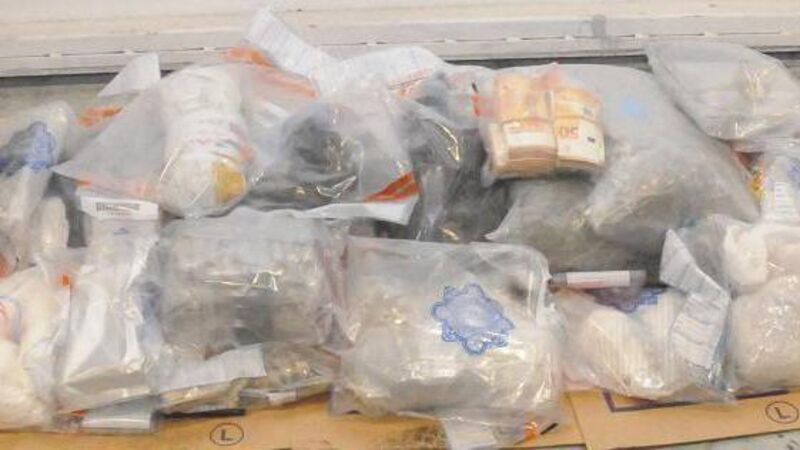Drug-debt intimidation 'not like owing a bank manager money'

Last year, cocaine accounted for one in three of the 12,009 cases treated for problem drug use, ahead of opioids, cannabis, and benzodiazepines. Picture: An Garda Síochána
A chance red light gave John the split-second chance to jump out of the car he had been bundled into by three drug-debt enforcers armed with a hammer and crowbar.
He had been grabbed as he walked down the street, shoved into the car, and told by the driver, who was holding a hammer, that he’d “get it”.











